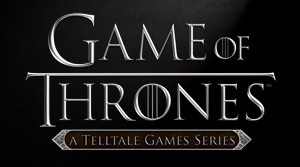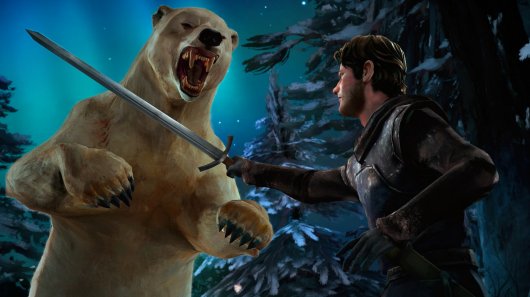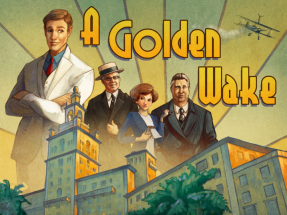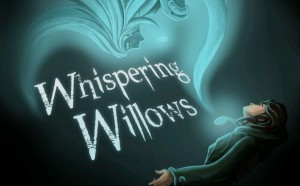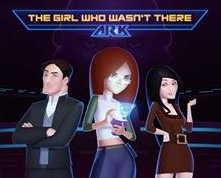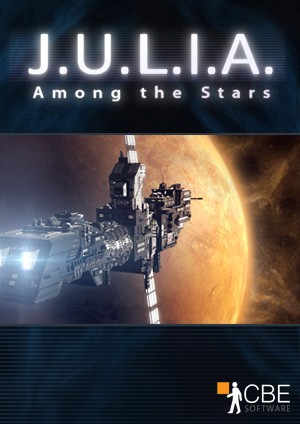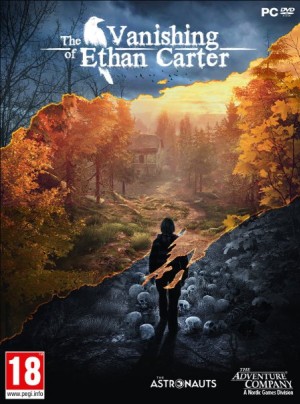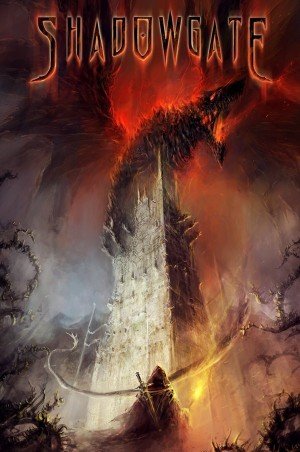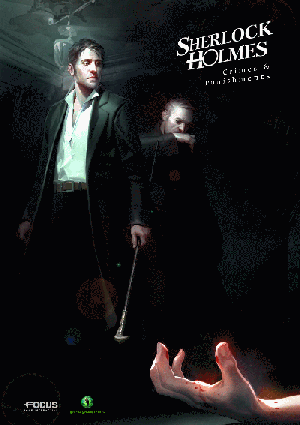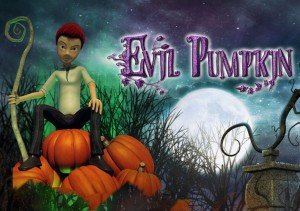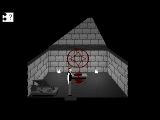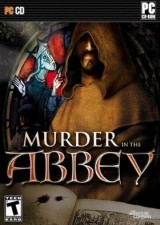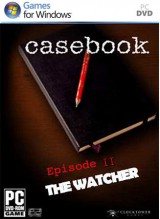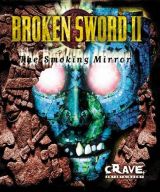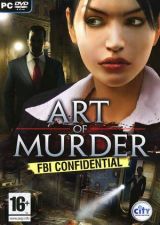Review for Game of Thrones page 3
Take me straight to Episode Six!
Episode One – Iron from Ice
Given the dark and gritty subject matter of the popular Game of Thrones television series (based on George R.R. Martin’s A Song of Ice and Fire fantasy novels), it comes as no surprise that it is now being adapted as a Telltale episodic adventure. Widely acclaimed for its mature treatment of graphic novels The Walking Dead and Bill Willingham’s Fables, the developer seems like a natural fit to take on this original tale that takes place alongside Martin's plot. However, while the game’s story and execution are certainly worthy of the revered universe they’re set in, I found myself less satisfied than my initial expectations. All rich stories need time to build up suspense, and perhaps Game of Thrones more than most, but the sheer density of dialogue over gameplay here caused the momentum to lag in the middle before ramping up again dramatically by the end.
The first episode, Iron from Ice, is by no means an attempt to bring the uninitiated into the fold, nor does it hold your hand to gently ease you into the story. Taking place shortly after the end of the War of the Five Kings, the story begins on the eve of the Red Wedding, placing it within the third season (and third novel). Having a working knowledge of the events and alliances leading up to and through the War of the Five Kings is definitely a prerequisite to getting the most out of the game, as notable events and personalities are consistently referenced with little to no explanation; it is implicitly expected that players have traveled to the land of Westeros before, and that they feel equally at home in the royal chambers of the Red Keep as in the frozen fortresses lining the Wall. Newcomers to this world, or those with only a passing knowledge of it, should not expect to be treated with kid gloves here.
Much like the novels, the game follows multiple protagonists, jumping from one to the other and back again at frequent intervals. Players are introduced to House Forrester, former bannermen to House Stark renowned for cultivating the hardy Ironwood groves of the North. The narrative jumps between several key members of the Forrester family, as well as those closest to the household: young Ethan Forrester, who is forced to assume the leadership of his House in the wake of his father and brother’s sudden demise in an enemy ambush; his older sister Mira, handmaiden to Lady Margaery Tyrell, currently at court in King’s Landing; and Gared Tuttle, squire to the late Lord Forrester, wanted for murder after escaping the massacre that claimed his liege’s life. There’s also Talia, Ethan’s twin sister, and Ryon, his younger brother, as well as his mother Lady Elissa and older brother Asher, living in self-exile on the faraway continent of Essos; it seems likely that some of these will be playable characters in upcoming installments.
As the story opens, Gared becomes witness to Lord Gregor’s slaying, and is tasked with carrying a vital, cryptic message north to House Forrester – the future of the family depends on it! This first scene, in which the armies’ camp is overrun with soldiers intent on snuffing out all resistance, serves as the game’s tutorial. Gared performs menial tasks and takes part in conversations with Lord Gregor and others around the camp. During these moments you can typically choose from 3-4 replies, ranging from polite and respectful to rude and forceful. An option to simply stay silent is also available. But be warned: your time to reply is quite limited, and should you fail to make a selection before the on-screen bar depletes, you’ll not get a second crack at it. Personally, I’m not a big fan of this system – I love having options, but dislike being rushed into choosing one, particularly when lives hang in the balance and depend on a few well- (or ill)-chosen words. But even here it’s impossible to “break” the game; fail to respond at a crucial moment, and another character may well step in and do it for you, ensuring that the narrative continues down its pre-ordained path.
As a general rule, it’s easy to select the “right” response – clues can be found within the context of the conversation itself, by characters’ relationships to each other, or even offered verbatim by another character. For example, when Mira Forrester addresses Queen Cersei, a demure and respectful tone will go a long way; conversely, Ethan Forrester is counseled by his man-at-arms Royland to deal harshly with a man who’s been accused of stealing. Even in these critical situations, however, players always have the option of ignoring all advice and going with their own gut feeling instead.
While I was free to act as defiant as I wanted, I did not feel that doing so truly impacted the game in any meaningful way. I was constantly reminded that “such-and-such will remember" how I responded via on-screen cues, but the direction of the narrative outweighed my choices seemingly every time. I played through the entire episode twice, choosing the “heroic” path the first time and being as much of a jerk to everyone as I could the second time, yet the events did not unfold in any significantly different way. Of course, some of my choices may have more dire consequences further down the road.
Once Gared escapes the melee of the opening scene and flees to Ironrath, ancestral home of House Forrester, control switches to young Ethan as he assumes charge in a time of political and civil unrest. With the War of the Five Kings over, generations-old alliances in the North have shattered, and power is in flux. House Forrester finds itself accosted by its rival, House Whitehill, who has the favor of the new Warden of the North, Roose Bolton, and by proxy his bastard son Ramsay Snow. Fearing retribution from Snow for exacting revenge on a group of Whitehill soldiers, the Forresters send a plea to Mira, Ethan’s sister at King’s Landing, hoping that Lady Tyrell will put in a good word for them with the King.
As if it needed to be clarified, Game of Thrones is not a thrill-a-minute action game. The political machinations that make the books and show so intriguing are present in the game through and through. Keeping in mind who’s playing whom and who’s dancing on another’s strings makes each conversation a high-wire trapeze act of balance, though it can get hard to keep a clear overview. At one particular moment in the game it got so confusing that I lost sight of the big picture, and became a little unsure of what I was, in fact, committing to with my dialog choices.
If you’ve played any of Telltale’s recent adventure games, you’ll already know to expect this, but newcomers should be forewarned: there is a lot of dialog in Game of Thrones! Entire chapters of the game can come and go without a break in conversation, with nary a moment of action or exploration to break them up. The actual exploration segments seem fairly superficial: you walk through a self-contained environment in a kind of circle, with the camera fixed at the center of it, examine objects, read letters, and occasionally pick up an inventory item. There are perhaps two or three such moments scattered throughout the game, and each one felt without purpose, other than providing a bit of flavor narration.
The action segments, of which there are only two over the course of the episode, consist of timed button or key presses, usually making your character swing a weapon, dodge, jump, or fend off an incoming attack. All of the action happened early on, after which the tension had to be maintained by the unfurling story’s dialog. Not that the time ever grew overly dull or stale; the tale was gripping enough to sustain the episode’s two-hour runtime, but engaging in a veritable gauntlet of conversations for such a length of time does create a bit of detachment between the game and the player.
This overwhelming one-sidedness is reflected in the game’s puzzles as well – or lack thereof, as there simply aren’t any. As such, there is really nothing that will ever cause the game to grind to a halt or even slow in pace; conversations may take a few twists and turns, but it is impossible to lose the game by answering incorrectly. Dying during an action scene will cause a ‘Valar Morghulis’ screen to greet you, but the game sticks you right back in, only a few seconds back from where you met your end. But traditional inventory puzzles, or even more classic puzzles of skill and wit, are nowhere to be found. In fact, the only two or three inventory items I found during my first playthrough – which I completely avoided my second time through to see how the game would change (spoiler: it didn’t) – were not used at all during this first episode, and just took up space in my inventory bar on the left side of the screen. I assume these will come into play at some point in a future episode, though their optional nature suggests they won’t be required to progress.
Visually, Game of Thrones holds its own, portraying its high fantasy influences through a slightly more realistic look than that seen in Telltale’s last few games. The overall aesthetic eschews the bold colors and heavy outlines of earlier works for a more muted, painterly effect. Environments look particularly nice, though they by no means set a new bar for the genre. While I have not followed the TV show, I imagine fans will be pleased by the handful of cast members whose likenesses have been recreated faithfully for the game, including Tyrion and Cersei Lannister, among others. The respective actors also lend their vocal talents to the characters, making the game feel even more an extension of an already existing universe than a loosely related association. My only complaint is that a few characters looked too similar. In particular, I often couldn’t tell the Forrestor’s castellan Duncan Tuttle apart from Maester Ortengryn, which wasn’t a big blow to the story but annoyed a little nonetheless. The graphics won’t astound anyone, but the overall presentation is smooth enough.
Similarly competent is the game’s sound design. Filling the role of composer once again is Telltale favorite Jared Emerson-Johnson, whose grandiose melodies and swelling orchestrations accompany players across the continent of Westeros. The show’s familiar intro theme is reproduced here, but even before that, Emerson-Johnson’s hauntingly ephemeral and ponderous opening provides a perfect gateway into the fantasy world, and his songs complemented the remainder of my journey without ever becoming overbearing. They consistently provide an aural backdrop for the sweeping kingdom full of knights, sellswords, and political schemes, while never actually sounding like background music.
Meanwhile, the diverse characters are brought to life by a cast of talented actors. It speaks to the non-TV actors’ credit that I often found the new characters to sound as real, if not more than, their as-seen-on-TV counterparts. In fact, Peter Dinklage’s Imp sounds a touch wooden, while Erik the thief, who only appears in one brief scene, left a lasting impression on me with his desperate pleas for mercy. Even characters that weren’t so easy on the ears, such as the young Ethan Forrester, an intellectual more at home in a library’s reading room than striking fear into his enemies and commanding respect from his underlings, were cast true to type.
When considering the overall success of this first episode of Game of Thrones, I feel caution is somewhat in order. I wasn’t brought to new heights of excitement and emotional involvement… at least not yet. Also, I felt let down that I couldn't see the importance of any of my actions; whether I showed force in the face of danger or used diplomacy to assuage my enemies, the results were always one and the same. But George R.R. Martin’s epic fantasy world has always had the kind of grand scope that requires a bit of set-up before the payoff, and it’s still early in the game. I just hope that when all is said and done, the different paths one can take through the game will feel like more than just parallel roads with slightly altered dialog, all leading to the same destination.
Episode Two – The Lost Lords
Naturally, one cannot expect the wheel to be reinvented between instalments of Telltale’s episodic adventure series. So it comes as no surprise that the sophomore entry bears very few changes that set it apart from the initial title. In terms of visuals and sound quality, in fact, there are virtually none at all. This is far from a bad thing, as they were pulled off well initially. (An odd shimmering effect makes a nuisance of itself here and there, causing parts of the background to look as though seen through a heated haze – otherwise, the game’s look remains pretty consistent.)
In the arenas of playability and design, Telltale has – dare I say it? – given players even less to do to move the story along than before. As bare-bones as player participation was in Iron from Ice, The Lost Lords offers very little to do when not engaged in dialog or a timed-button action sequence. Even moving through environments is more often than not an on-rails experience: coming out of a cinematic, players are often only allowed to go forward, straight into a new conversation or cutscene. Puzzles are still entirely absent, and the inventory system has been relegated to “useless” for the duration of this episode (the few items I picked up in the initial episode went completely ignored).
One area that has been beefed up – though the initial game already managed it well – is the skillfully written plot, which kept me even more riveted than before, filled with emotional drama while still managing to impart the necessary exposition. After the uphill pacing of the introductory episode, tension ramps up sharply here, and the stakes are made ever clearer: war’s in the air, family feuds become more urgent, partnerships and unions stand on a knife’s edge, and the writing’s on the wall for some epic clashes further down the line.
The exiled Asher Forrester makes his appearance early on, while the remainder of his family back at Ironrath comes to terms with their latest tragedies. Gared Tuttle arrives at Castle Black to begin his initiation into the Night’s Watch, and is immediately harangued by cold weather and colder company. At court, Mira Forrester is further drawn into the political web of King’s Landing, and becomes the target of an unknown danger lurking in the shadows. There are several well-used opportunities for engaging new characters, such as Asher’s mercenary partner Breskha and would-be love interest Elaena, and Cotter and Finn, two new brothers of the Night’s Watch serving time at Castle Black. The new characters are immediately relatable, and each one seems to figure into the greater scheme of things in their own important way.
The story, equally brief at two hours, incorporates some genuinely surprising twists, keeping the pace moving at a good clip throughout. More importantly, after the lackluster way choices (and their consequences) were implemented in Episode One, this time you’ll be forced to choose in tougher situations that offer meatier decisions with weightier consequences. While it could all just be illusory, it seems like player agency counts for more than just window-dressing this time around. Apart from the 5 main choices – one at the end of each major section – there are about 20 or so minor decisions to be made, through word or action, most of which felt somehow more vital than the previous episode’s. While I didn’t notice my decisions from Iron from Ice coming back explicitly to help or hinder me, there were some distinct differences in my two opposing playthroughs. Surprisingly, my anti-hero persona received more desirable responses than my Goody Two-Shoes, while, try as I might, I somehow just could not tread a saintly path of pure righteousness. It will be interesting to see this tree branch out further and further as the story continues.
Overall, though I felt more a passive observer in the actual action than ever, the high quality of the narrative more than made up for this and made this foray into the Game of Thrones universe more enjoyable than its predecessor.
Episode Three - The Sword in the Darkness
Marking the halfway point of Telltale’s six-part Game of Thrones series, The Sword in the Darkness elevates the narrative’s conflict to new heights, but does little to improve on any of the series’ shortcomings to date.
In terms of content, this episode offers up a bit more than the previous two. New characters are introduced, like the despicable Gryff Whitehill, sent to Ironrath to bully the remaining members of House Forrester, and familiar faces return, like wiry Britt, the man who slew Gared’s family, now a new arrival at Castle Black just as things at the Wall were starting to go Gared’s way. Players will also be treated to more set pieces and scenes than before, including a nasty encounter with one of Daenerys Targaryen's dragons. Already lengthier than its predecessors, due to Telltale tightening the story’s pacing and switching between locations and storylines more frequently within the episode, the game seems still longer.
As characters get tangled even further in the webs of intrigue, I was surprised to find an actual puzzle included in the game! While the first two episodes were DOA on the puzzle front, this time a scene taking place at Castle Black requires players to finally use an inventory item attained in Episode One to solve a map puzzle by manipulating both objects and revealing a secret location. Most inventory items make their presence felt solely within conversations, and you’ll have several opportunities to access specific responses, provided you collected the appropriate item when it was available.
The Sword in the Darkness tightens the screws on House Forrester’s dilemma with their overbearing neighbors, the Whitehills. They are bullied and buffeted from every conceivable angle, pressed into making grievous missteps in this game for power. Meanwhile, the rest of Westeros follows the established events from the show. These are far more than mere window dressing to the story at hand, however, and our protagonists are swept along in the wake of these events, affected by them in both helpful and perilous ways.
Overall, the drama in this episode becomes more personal than ever. As the Whitehills make their presence felt in Ironrath in increasingly spiteful and nasty ways, choosing how to react often became an issue of biting back my own thirst for satisfying vengeance in favor of a more level-headed approach… or giving in and letting the fists fly, and consequences be damned. Choosing whether to prioritize accomplishing my goals, even if it meant putting characters I’d come to care about in foreseeable peril, became a serious balancing act, and even after two differing playthroughs, I’m still not convinced I’ve accomplished it in a way that satisfies me.
What struck me the most, however, is that the further the story progresses, allowing for multiple plot twists and how I’ve treated various characters, the harder I’m finding it to play and influence it the way I want. This includes being shut out of a positive outcome to a situation due to having mistreated a possible ally in a previous episode, or maybe just misreading a situation and choosing an action that is contrary to what I interpreted. Sometimes, having to choose a response in a matter of seconds leads to poor decisions. I suppose, depending on your point of view, this could be either a positive or negative aspect of the game, though I prefer my choices to actually reflect my intentions, especially when playing a game meant to give me choice.
Of course, I’m still not entirely convinced that any of Game of Thrones’ choices actually amount to a noticeably different outcome – to date, events have happened the same and characters have survived or died completely independent of my choices. Honestly, I’m still of the mindset that choice is just a thinly veiled illusion, affecting only the most trivial of details. I’ve successfully impacted how events have come to pass, but not whether they transpire at all. That’s something I’d still love to see the concluding half address: to be given some actual authorship of where the story eventually leads.
Episode Four – Sons of Winter
With the release of Episode Four: Sons of Winter, Telltale clings steadfastly to its formula of providing a sterling narrative largely unfettered by player choice. If anything, the choices in this latest installment come closer to feeling impactful than ever before, without truthfully carrying much weight at all.
The episode opens with less fanfare than some of its precursors. In fact, I spent the better part of the first half of the game engaged in conversations, discussions, banquets, and palavers with little action to break them up. This is happily remedied during the second half, with a tight cluster of ambitious action setpieces: Players will get the chance to take an active role in the sacking of Meereen by the armies of the Queen Across the Water in a lengthy battle, and a jaw-clenching standoff between the Forresters and the Whitehills that really, truly fooled me into believing that the fate of a major character depended on my next move. (Spoiler alert: It didn’t, though the illusion went a long way to making me feel included in the narrative.) Another moment in the latter part of the episode gives you control over who will set out with Gared toward the North Grove… at least for the time being.
The game’s writing remains top-notch, juggling multiple conflicts, all hurtling towards apparently epic conclusions. The plight of House Forrester is easily on par with the drama presented in the show and novels, and seamlessly blends into the established world. I find myself happiest when events are allowed to unfold without interference from established canon characters like Jon Snow or Cersei Lannister (of which there seem less this time around). Cameo roles can even seem somewhat contrary to their established TV personas, like Daenerys Targaryen behaving needlessly aggressive here, and the odd interplay between the show cast and the game’s protagonists serves to highlight the excellent job Telltale does writing original villains instead. The same can be said for the impeccable voice characterizations, which are uniformly rock-solid (save for the aforementioned TV characters, which appear wooden and awkward by contrast).
This episode seems the shortest so far, at just over two hours, but certainly the most heavy-hitting, like when things come to a head between Rodrik Forrester and his tormentor Gryff Whitehill. Gameplay is still sparse outside of conversations and action pieces, but some scenes, like Mira’s eavesdropping investigation at the coronation banquet, serve to highlight a slightly heavier emphasis on interactive gameplay than we’ve seen thus far. This sequence may not feature the clash of steel, but is a great example of well-written characters and dialog, and reminds us that playing the Game of Thrones off the battlefield is just as important as on.
It’s becoming more and more apparent that Game of Thrones absolutely works as a companion to the show, even a piece of established lore in its own right. The writing is seamless and characters absolutely believable. I for one am eager to be around for the concluding chapters of this series.
Onward to the North Grove!
Episode Five – A Nest of Vipers
To create tension ramping up towards the upcoming finale of Telltale’s Game of Thrones saga, the body count rises in Episode 5, and by the end we’re finally(!) given a choice that actually impacts the fate of one of our heroes going forward. However, the penultimate episode is a bittersweet affair. For everything it does well, it also reveals a carefully hidden chink in its armor.
A Nest of Vipers, predictably, maintains the series’ stellar standard of voice acting. Though the ensemble cast doesn’t change much from episode to episode, the few new additions here and there, like the pit fighters of Meereen – Amaya, Bloodsong, and The Beast – are outstanding. And this time I didn’t get the feeling that the television actors were being outpaced; in fact, Iwan Rheon’s Ramsay Snow is a delightfully superb villain. The performances of the cast are complemented by expert character animation, like during a scene early on when Elaena Glenmore discovers a brutally butchered victim. The combination of vocal performance and realistically animated reactions of horror and grief lend a lot of impact to such dramatic moments in the game.
As successful as the individual scenes are at creating drama in a micro sense, by this point in the series they also make apparent a shortcoming caused by the episodic release schedule. During the first few episodes, it was all fine and good for the drama to be contained within an episode, and for players to come back to the series refreshed a month or two later. But by the fifth installment, I really wanted to gear up my emotions for the end: start to root for the good guys, really hate the bad guys, and get to see it all come to a head as the series concludes. But the constant on/off nature of playing the episodes as they release, months apart, makes it more difficult to maintain that thread of emotion, and it left a bit of a bitter taste in my mouth this time. For example, the opening scene is intended to shock players back into the right frame of mind, and presumably raise the stakes for what is to come. But I felt rather blasé about it; I honestly didn’t even fully remember who the character was I was supposed to care about in this scene. It’s just too easy to forget minor characters, details, and connections from one episode to the next. This won’t be as much of a problem once all six episodes have seen the light of day and players can simply play straight through, but for now this is the world we live in.
But once I had regained my bearings, I should’ve been all set for the remainder of the episode, right? Unfortunately, I found myself annoyed by the dialog system over and over again for the duration – which, clocking in at about 90 minutes, makes this noticeably one of the shortest episodes released so far. It’s clear by now that the choices we’re given don’t often count for much. Still, since we are given the choice to reply how we’d like during dialog scenes, I at least try to follow a certain play style, either honest and kind or dismissive and downright rude, depending on the character and situation. Though I know it won’t matter in the long run, I try to enjoy playing the characters the way I want them to be. But even this is becoming harder and harder, and it honestly led to no small amount of frustration when a dialog choice that seemed like I was being honest and forthright instead came across as deceitful.
An early example of this occurred as Asher reported back to Daenerys Targaryen after the sacking of Meereen. Wanting to be a loyal associate, I freely admitted to the killing of a slaver during the previous episode, since it seemed like she already knew about it and denying it would be pointless. However, this only led to my comrade Beskha being upset with me, and Daenerys being no less displeased for all my honesty. In other words, no matter what I would have said (or which choice I made in the previous episode), the outcome remained the same. I replayed this entire sequence a completely different way, without first killing the slaver, hoping for a more positive outcome. Sadly, nothing changed, aside from the lines of dialog leading up to the same conclusion.
Even later in the episode, while playing Rodrik, all my mistakes were listed, one at a time, during a heated conversation with another character. The bitterly hilarious thing here is that, no matter what you’ve done, it will count against you. Case in point: On two separate playthroughs of an earlier episode, I first chose to kiss Ludd Whitehill’s ring, then refused to do so the next time. Fast forward to Episode 5, and both choices are listed as examples of how I’d ruined the family’s future. There was no right way to handle that situation. This is representative of so many other choices made over the course of the series, that seem only to affect which line of dialog I’d get to hear later, making those choices (and to some extent the scenes they’re set in) entirely irrelevant. And really, it’s too damn tricky by this point to keep track of all the ins and outs of who said and knows what, so using the dialog choices to make the conversation follow the path you intend is a fool’s game. It’s as convoluted as the actual Game of Thrones.
There is one ray of sunshine in this respect, though coming so late in the game it may be a case of too little, too late. But as A Nest of Vipers draws to a close, we’re at last given a choice to make that determines the very fate of a main character, and are then forced to watch it play out in a brilliant climax full of drama and tragedy. In a game of choices, this is the kind of impact we should have been seeing all along. It’s tragic it’s taken this long to get to it – and only time will tell how much it actually impacts the final episode – but it’s great to be given a hand in shaping how the finale will play out. In a series almost entirely devoid of puzzles or gameplay, apart from the obligatory handful of Quick Time fight scenes, we should at least be offered meaty choices like this to shape our own story.
With the game’s end in sight, the various fragmented storylines are wrapping up and merging together; the majority of Episode 5 focuses on the tales of Asher in Meereen and Rodrik at Ironwrath, and even these two threads join together by episode’s end. The strange thing here is that there really isn’t any payoff to the stories of Mira and Gared in King’s Landing and Beyond the Wall, respectively. To be fair, they do both appear during A Nest of Vipers, but to a much lesser extent, and it’s hard to think of them as very important to the plot anymore. (In Mira’s case, I’ve quite lost any interest in what is happening at the castle, and fail to see how it was really ever important to the rest of the game.) Based on the lack of anything important developing on those two fronts, it’s difficult to imagine that they will be of much relevance to the endgame, possibly relegating entire sections of the series – and all the choices I made while playing those sections – as superfluous. Of course, with one more episode to come, I very much hope I’ll be proven wrong on this score.
Interestingly, A Nest of Vipers is the first episode that has not ended with a sneak peek at the next installment, so we’re left completely in the dark as to what’s to come. I’m certainly hoping to see my life-and-death choice here pay off after the dust settles in a way that’s more than just cosmetic. Telltale is proving itself once again capable of weaving a great narrative, but in terms of gameplay and the effects of my choices having an impact on the outcome, my excitement for the series finale doesn’t go far beyond reserved ambiguity.
Episode Six – The Ice Dragon
“It could have been so different.”
This line, uttered by a character near the very end of the sixth and final chapter in Telltale’s episodic Game of Thrones tale, The Ice Dragon, seems almost ironic. The concluding installment is an improvement upon its predecessors’ lack of real and meaningful choices, and when viewed as a standalone entity it is better than the others, likely as a result of a longer development period this time around. But terms like “improvement” and “better” don’t pack the same punch when all six episodes ultimately have to be viewed as a single whole, and closing on a strong note does not fully erase the early missteps this series has taken, especially when the finale doesn’t even offer proper closure to one of its major storylines.
Let’s not spend a lot of time on the elements that have largely stayed the course throughout. The graphics, unsurprisingly, remain the same, which is to say almost watercolor-like backgrounds with more realistic character models that do a good job portraying character emotions in such a dialog-heavy game, as well as during those quiet beats that convey so much unspoken information. Despite being animated, the likenesses of familiar faces from the show are recreated faithfully, though you won’t find many of them making appearances this time around.
The soundtrack, when there’s any at all, also stays true to the show, from the familiar opening theme to other, original compositions by Jared Emerson-Johnson that perfectly match the tone and style of the HBO series’ musical score. By contrast, entire sections of gameplay remain purposely unscored, emphasizing the drama that well-placed silence can offer. The voice acting is, as per usual, superb. Despite some reservations I had about a few individual characters in early episodes, there is not a weak link to be found among the stellar cast that carries the game through its conclusion.
As in each previous episode, gameplay is almost entirely composed of dialog and action scenes. Free exploration is non-existent and puzzles of any kind are entirely absent. Instead, what The Ice Dragon offers, for the first time since the first episode released almost a year ago, is a feeling that player choice finally counts for something more than the barest of window dressing. But even here not all is what it seems.
Partial spoiler alert for ending of Episode 5
At the end of the previous episode, players were given the choice between two major characters to carry over into the concluding chapter. This option pays off in spades here, as whom you chose to live affects more than just a few lines of dialog this time around. Entire scenes appear in the game or are omitted entirely depending on who survived A Nest of Vipers, and quite a few possible paths through the epic final showdown open up based on who is still around by the end.
End spoiler
Even with these different paths, however, no matter what strategy players avail themselves of – be it deceit, treating for peace, or all-out attack – the end always turns out the same in the central Forrester storyline. I tried not one, not two, but three completely different playthrough approaches, but the most I could achieve was to influence the outcome for a few chosen characters; the fate of House Forrester as a whole, it seems, is set in stone and could not be changed no matter what I did.
There is a different kind of player choice at work in this final episode as well. Throughout the series, I’ve been able to make small decisions here and there but only occasionally eliciting a relevant, tangible consequence. Generally, whether I’ve tried to act kind or behave dastardly, the result has always been essentially the same. Ice Dragon changes this, offering several opportunities to do – and I don’t use the word lightly – some terrible things to others. Some of these choices may not have any long-term effects in the upcoming sequel (which is heavily hinted at in the game’s closing moments and has since been confirmed by Telltale), though one in particular decides life or death for a significant character. But what’s important here, whether there’s a payoff later or not, is that I felt that what I did – what I chose to do – actually mattered this time, even if only at that moment. There’s a great sense of weight when potentially causing harm to friends – or sacrificing your own safety to protect them from it. It makes these moments infinitely more memorable than the earlier decisions I made.
In true-to-form Game of Thrones style, the full-season narrative has splintered over multiple different regions of Westeros and beyond, following the various members of the Forrester clan. Over the course of the first five episodes, two key story threads had joined together, but as the final episode loomed, other major story arcs were still far from connecting, with no sign of a neat wrap-up anywhere in sight. By the time The Ice Dragon’s credits roll, the main House Forrester storyline has reached its exciting climax while still leaving the door wide open for a sequel.
But neither of the remaining two ancillary narrative arcs fare as well. Mira’s tale in King’s Landing ends dramatically but without much, if any, of the actual impact on the main story it seemed to promise all season. The other, Gared’s mission to seek out the North Grove which was introduced in the series' very first scene and presented in such a way as to make us think it would be the key to the entire game, ended up as an entirely standalone storyline, never influencing the main conflict. While lamentable, this is not entirely surprising – the build-up of this mystery-cloaked story has been so gradual throughout the season that it became more and more unlikely for it to become relevant to the Forresters as each episode came and went. There are several hard-hitting set pieces involving Gared in The Ice Dragon, but clearly his story was never even intended to be resolved entirely in the first place. Even the inclusion of characters from the show seems like a bit of a gimmick in retrospect – Tyrion, Cersei, and the rest turn out not to have added anything of importance to their respective storylines, nor to the overall game.
Cliffhanger endings and future story teases are another Game of Thrones hallmark, but that’s to be expected in an adaptation of an epic (planned) seven-part novel series. There was reason to expect full story integration and proper closure in this original side story from Telltale, but neither ultimately occurs. It’ll be interesting to see how the most critical player choices are handled next season, as several would seem to be irreconcilable going forward. But as enticing as that prospect will be for some, for others the many unanswered questions will be a disappointment. This game would have more honestly been marketed as Game of Thrones: Season One, since even after six episodes it really doesn’t stand on its own.
Looking at Game of Thrones as a whole, a story game replacing the usual adventure game staples with simplistic Quick Time Events and otherwise wholly reliant on the power of its purported choice-driven narrative, the clear question for me was whether I felt like I had a hand in creating my own story. With the exception of the final episode (and by extension the endgame decision of Episode 5), the overwhelming answer to this is “no”. Despite my actions (or lack thereof), the central story arc, as engaging as it was, felt constantly corralled into a preset direction. The type of choices I was given at the end – choices of who lives or dies, whether I honor my morals or sell my soul, choices that circumvent entire game segments in favor of alternate paths – should have been the norm rather than the late exception, as challenging as that would have been to design.
After an extended four-month wait, The Ice Dragon caps off an interesting if ultimately inevitable Game of Thrones tale with satisfying action and key improvements across the board, the most important of which being actual player agency in determining the direction of the House Forrester story. It’s a shame, though, that the side stories ultimately fail to connect together in a similarly meaningful way, with one feeling more like a beginning than an end. The final result is a game whose outcome feels mostly set in stone before the first episode was even released. This doesn’t matter in the case of most games, but when choice-and-consequence is one of the primary selling points, it is something to be aware of going in.
“It could have been so different.” No. No, it really couldn’t.


